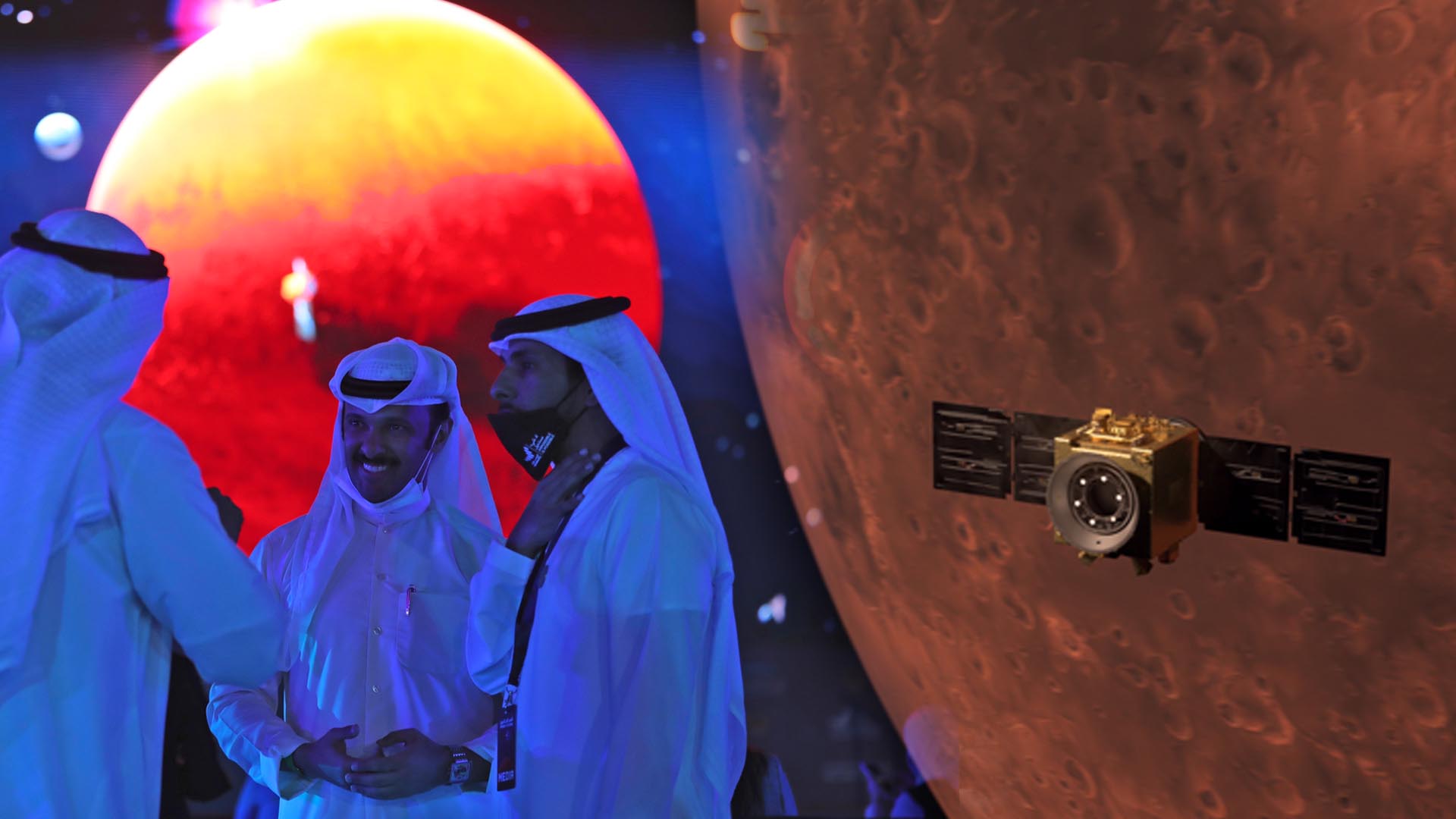[앵커]
Arab countries have also joined the increasingly fierce competition for space exploration.
The United Arab Emirates in the Middle East, an oil-rich country, successfully entered Mars orbit for the first time in the Arab world, and this is a step toward a future that cannot be relied on only for oil resources.
This is Park Hye-jun PD.
[리포터]
“This is an announcement that the United Arab Emirates has successfully entered Mars orbit.”
Applause and cheers are pouring among citizens when the success of the Arab world’s first Mars probe’Amal’ has been announced.
Launched from the Tanegashima Space Center in Japan in July of last year, Amal landed in orbit on Mars after flying 493 million kilometers for about 7 months.
This makes the United Arab Emirates the fifth country to successfully orbit Mars after the United States, the Soviet Union, the European Space Agency and India.
Amal’s missions include atmospheric measurements and surface observations in the upper and lower layers of Mars for 687 days, a year in Mars time.
“(Entering Mars orbit) is another way for us to explore other planets. It opens up wide possibilities for everyone in the UAE.”
Although the UAE is considered an oil-rich country, it is investing heavily in innovative future technologies to prepare for the post-fossil fuel era.
About 6.6 trillion won was invested in space research, including the exploration of Mars, and in 2019, three astronauts were sent to the International Space Station.
In addition, long-term space development policies, such as the 2117 Mars settlement construction project, are also being promoted.
As the competition for space exploration is getting fiercer, Chinese Mars probe Tianwon-1 and US exploration rover’Purservation’ are also approaching Mars orbit one after another.
This is Hyejun Park on Yonhap News TV.
Yonhap News TV article inquiries and reports: katok/line jebo23
<저작권자(c) 연합뉴스,
Unauthorized reproduction-redistribution prohibited>
2021/02/10 17:50 sent
–


